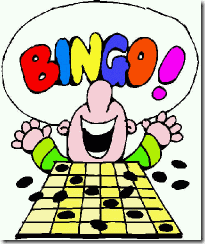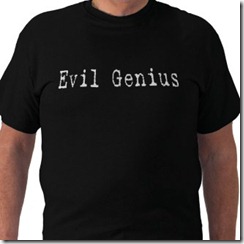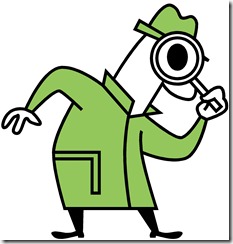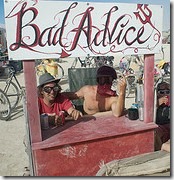Fiction-Zone: Leaps in Fiction Mastery by Diane Holmes, Chief Alchemist of Pitch University
When writers talk about theme in fiction, the conversation quickly goes south. It’s all abstraction and morning fog and candy that looks good until you bite into it.
No one responds, “Theme is one of the most useful tools I have.”
Because theme is usually defined in a way that is, what I call, “pure and content free.” Knowing the answer doesn’t mean anything specific to your book in a way that’s different from other books.
 Here are 3 ways I think theme should not be defined (and a call to action to define it in a whole new way).
Here are 3 ways I think theme should not be defined (and a call to action to define it in a whole new way).
#1 Theme Isn’t Just One Word
(Warning: this will probably go against what you’ve been taught. Be brave, buckaroo.)
Theme is not just one word. You can’t just say, “Family, that’s my theme.” Or, “My book is about loss.”
Why? Because if your theme is only one word, then all you need is one scene about family or loss and you’re done. Theme fully explored. Eureka.
Isn’t it the unfolding of understanding (of theme) that makes it, uh, the theme of the book? Theme isn’t a item you point to, it’s the meaning you demonstrate (another word for “explore”) over the course of your story.
Theme is exploration.
#2 Simplistic Mottos are Just as Unhelpful
And while I’m smashing the sacred cows of theme, let me also say you’d be well-served to move away from generic “truisms,” like…
- The world is a hard place.
- You have to fight for justice.
- Hatred has negative effects on people.
- Hard work leads to success.
- Bad luck happens for no reason.
Heresy, I know.
But when you only look at theme like this, you’re pretty much looking to fiction as having a generic teaching message with a pop quiz at the end. “Read this book, and then extrapolate the one rule you need for real life!”
It’s sort of like watching comedy movie and coming out with the message, “Wow, banana peels happen out of nowhere. Great theme. And wow, I should make sure I teach this to my kids”
Or it’s like watching a romance, and saying, “People kiss when they like each other. I see it now. It’s a wonder I ever got married! Why didn’t my wife tell me?”
Beyond the issue of “proving” something people already know, after the first banana peel, the first kiss, we readers don’t need any other movies or books to prove this point.
We’ve learned our lesson.
Message received.
And really, readers aren’t that dense. They don’t need 400 pages to get the message that the world is a hard place. Seems like one good scene ought to do the trick.
So while you can often sum up theme into a simplistic, overly-generalized motto, like the one-word-theme, this, too, is pretty unhelpful for the writer.
Aren’t you pretty sure, as a writer, that you have something fresh to say? A viewpoint that no one else has?
Aren’t you creating a story that is uniquely yours, characters and plot that only YOU could tell?
Do you really go out and say, “I’m writing a mystery novel that’s already been written before, and I have nothing new to say!”?
#3 Theme Is Not a Yes or No Question
And finally, another popular definition of theme is the Yes/No Question that the author then proves. Scientifically, one assumes.
- Is it possible to find true love?
- Can youth be recaptured?
- Can a liar be reformed?
- Will jealousy lead to insanity?
- Will good triumph over evil?
Seriously? That’s your theme? In that case, I can just answer the questions and not read the books.
What this tends to lead to is a book filled with “Yes it does!” “No, wait, it doesn’t!” “Wait! Thank gawd I was wrong! It does!” “Oh, my broken heart! I was more wrong than I ever thought I could be!’ “Wait…!”
Yes, no, yes, no, yes, no… Just jerking the characters back and forth. And this has been scientifically proven to annoy readers.
At the end, the reader shrugs and says, “Okay, I guess it really is impossible to recapture youth. I give up. You proved it.”
The Truth About Theme in Fiction
Doling out the same fortune cookie advice over and over is not what’s really happening with all the thousands and thousands of stories available to read.
And we’re not providing the same pop quiz answer over and over or testing a true/false statement.
Why? Because we’re not done inventing fresh stories. And if we could think about theme in a way that is specific, then maybe it would actually be more useful to us.
Using an example from above…
- Maybe the world is a hard place in more than one way, for more than one reason, and with more than one result.
- Maybe there’s a whole lot to say about how you cope with the hardness of life, how you absorb that hardness or dance with it as your circumstances change.
- Maybe there are a thousand ways to respond to the world in all its callus glory and this response is more important than any desire to point and say, “Oh, life is hard. I get it. Tough out there in the world. Never knew that before.”
So the one-word theme, the generic “truism” approach, the Yes/No Question–maybe, at best, these create over-arching theme categories. Groupings of themes for the purpose of collecting them into genus and species.
But I think the theme for your book has a meaning that is much more specific to you and your story.
Maybe we can come up with a new definition of theme.
Yeah, let’s do that. Let’s bring theme into the world of useful storytelling and story-creating tools.
TO BE CONTINUED NEXT WEEK…
—
 Diane writes two alternating columns for Freelance-Zone:Fiction-Zone: Leaps in FictionMastery and Marketing-Zone:Marketing-Zone: Marketing Yourself and Your Book.
Diane writes two alternating columns for Freelance-Zone:Fiction-Zone: Leaps in FictionMastery and Marketing-Zone:Marketing-Zone: Marketing Yourself and Your Book.
![clip_image001[4] clip_image001[4]](http://freelance-zone.com/blog/wp-content/uploads/2012/11/clip_image0014.jpg) Diane writes two columns for Freelance-Zone: (1) Fiction-Zone: Leaps in Fiction Mastery and (2) Marketing-Zone: Marketing Yourself and Your Writing.
Diane writes two columns for Freelance-Zone: (1) Fiction-Zone: Leaps in Fiction Mastery and (2) Marketing-Zone: Marketing Yourself and Your Writing.







